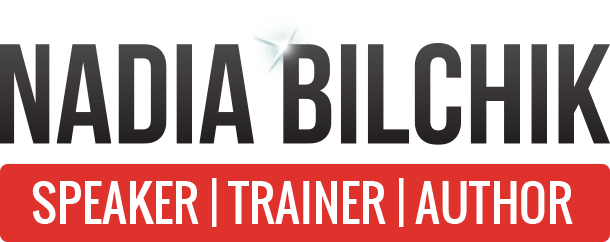- Decide on your objective before the session. As the passage from Alice in Wonderland goes:
“If you don’t know where you want to go, it doesn’t matter where you are right now, or what route you take!”
If, however, you have pre-thought and planned, chances are you’ll get to at least the neighborhood of your strategic objective.”
- Never stand up, walk in or “listen” with your name in neutral. Mental passivity is dangerous.
- Remember the hidden agenda in every human being and every issue, namely WIFM: “What’s in it for me?”
Put yourself in the audiences or other person’s shoes. Are you going to be pleasant, relevant and professional? Are you offering them something different? Why should they listen to you?
- The socio-emotional (light chit chat) phase of your interaction is up-front. It’s the lubricant of the wheels of society. It’s the pleasantries part of the interaction.
“Nice that our team has done so well in the International soccer” for example or” glad to read that your quarterly results were good.”
Keep socio-emotional chitchat short, but don’t skip it. Conclude with it as well.
- Don’t helplessly allow the discussion to wander. Be subtle but assertive enough to steer the session in a direction of value to yourself or your organization. Don’t be like presidential candidate Michael Dukakis whom George Herbert W. Bush said, “He’s the stealth candidate. He jets from place to place but no issues show up on the radar screen.”
- Remember small personal details, such as someone’s daughter completing difficult exams. Ask about them at your next meeting.
- Advocate only a single issue/idea if there is only a limited time.
- If you need to move to a higher gear or harder sell, don’t ignore the power of a light touch or self-deprecating bit of humor. For example, “Can I be totally commercial for a moment”….
- Promise a time limit and stick to it, even if it’s the oldest most hackneyed ploy in the business. The difference is you must and will deliver on the promise. Your maxim must be: Never be late, never run late.
- The secretary or receptionist is very often the keeper of the kingdom. Develop a rapport and empathy with this person. It is useful to know as much about him or her as the client you’re calling on.
- If you come across snippets of news in the newspapers or a magazine, fax them through to the client or secretary if you know they have a specific interest in a subject. This shows you have them foremost on your mind.
- Don’t impress them with irrelevant information. Share what you have on a “need to know” basis.
- A marketing-whiz client of mine has a good approach. He says you’ve got to know when you should be “Hands in, hands on, hands-off, or hands out on a given issue.” Be sensitive. Listen.
- Know when to leave a point alone. Benjamin Disraeli was asked how he, one of so few people, managed to get on well with Queen Victoria. He responded. “I remain silent a great deal of the time and seldom contradict!”
- Don’t forget the difference between features and benefits. The feature on the refrigerator is the one-meter long door handle, but the benefit is that little Johnny can go and get his own glass of milk because he can reach the handle. Interpret what you say into benefits for all concerned.
- Always remember, you are your organization’s image. In this situation the “mission statement” in the CEO’S office doesn’t count. You are what Jan Carlzon president of Scandinavian Airlines; referred to as “A moment of truth.” You’re the experiential contact. It’s primarily the relationship between you and the client that gets your products or services sold. The specific product, service and advantages are secondary…….but you knew that.
- If you don’t believe in and you’re not in love with what you do, what you represent and who you are, you are never going to be convincing and credible. Get excited, there is no sales technique (be it that you are selling your services, your product or your idea) that is as powerful as energy and enthusiasm.



